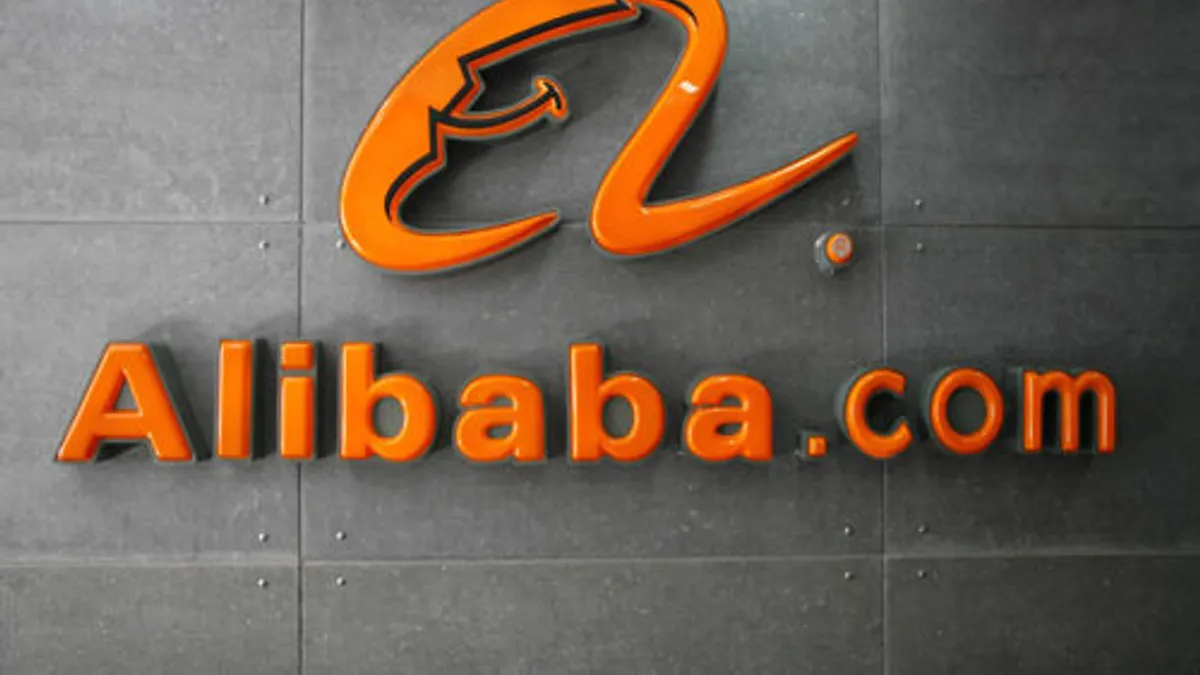Dive Brief:
-
Alibaba Group, French food retailer Auchan Retail and Taiwanese retail company Ruentex Group on Monday announced a partnership to share resources and platforms in going after China’s food retail sector, the companies said in a press release.
-
As part of the deal, Alibaba Group will invest a total of about $2.88 billion (HK$22.4 billion) for a mixed direct and indirect stake of 36.16% in Sun Art Retail Group Limited — a multi-format offline food retailer in China — by acquiring shares from Ruentex, according to the release. As of June, Sun Art operated 446 "hypermarkets," some as large as 17,000 square meters, across China under the RT-Mart and Auchan banners, as well as smaller format stores.
-
French company Auchan Retail is also increasing its stake in Sun Art. The transaction will give stakes in Sun Art to Auchan Retail (36.18%), Alibaba Group (36.16%) and Ruentex (4.67%).
Dive Insight:
The new partnership is another brick-and-mortar expansion for the Chinese e-commerce giant, as Alibaba continues building on its "New Retail" vision of combining its internet-based tech approach with physical outlets in hopes of creating a seamless consumer experience across China. In short, it will vastly expand Alibaba's brick-and-mortar footprint, similar to Amazon's moves in the U.S.
The new partners espect that Sun Art’s nascent e-commerce efforts will benefit from Alibaba’s digital ecosystem, bringing new retail solutions to its stores, including online and offline integration together with modern fulfillment and personalized customer experience, the companies said.
Building on the each other’s strengths, the move aims to introduce a new shopping experience to China’s 1.3 billion consumers, the companies said. "Physical stores serve an indispensable role during the consumer journey, and should be enhanced through data-driven technology and personalized services in the digital economy," Alibaba Group CEO Daniel Zhang said in a statement.
It’s also a tactical move against Walmart in the country. Walmart China has already been making moves to speed up its food distribution efforts there, cutting out the middleman in 2013 and negotiating directly with suppliers to reduce costs.
Last year Walmart sold its Chinese e-commerce platform Yihaodian to JD.com, China's second-largest online retailer behind Alibaba Group, in a deal that gave Walmart about 5% of JD.com shares. Walmart assumed full control of Yihaodian in mid-2015, three years after increasing its stake in the site to 51%. Walmart and JD.com now cooperate on the direct-to-retail component of Yihaodian’s business.
Walmart and JD.com are now combining their respective supply chains to offer a greater variety of products to Chinese consumers, including a wider assortment of imported products. Walmart's Sam’s Club China also opened a flagship store on JD.com, offering same- and next-day delivery through JD.com’s nationwide warehousing and delivery network, which spans roughly 600 million consumers nationwide.
Prior to that deal, Walmart controlled just 1.6% of China's online retail market, far behind Alibaba at 46.9% and JD.com at 20.1%. And while Walmart has pointed to China as a strategic market for growth, just 3% of Wal-Mart's global sales of $478.6 billion come from the country, according to estimates from research firm IBISWorld.












